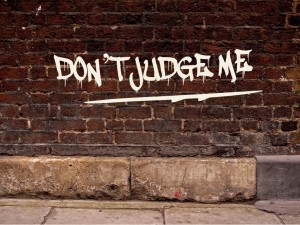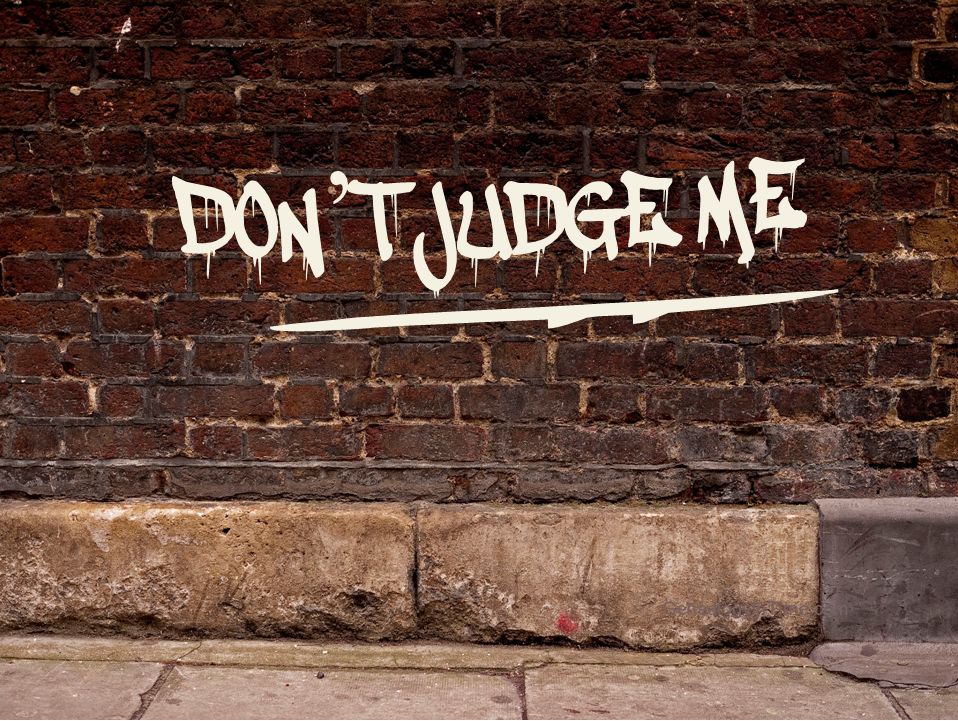 Don’t judge me!
Don’t judge me!
Have you ever heard that expression? Have you ever said it?
Usually that phrase is blurted out in disgust out when someone points out something they don’t like about another person.
Sometimes we hear variations:
“Don’t judge me just because I sin differently than you do.”
“Before you judge me, make sure you’re perfect.”
“Don’t judge me until you’ve walked in my shoes.”
We often hear people talk about how we should not judge each other. In fact, a Bible verse is even employed for extra emphasis. After all, Jesus Himself said, “Judge not, that you be not judged” (Matthew 7:1 NKJV).
What did He really mean? Let’s find out.
First off, we need to consider what it means to “judge.” When we hear this word, the first thing we think of is “Don’t talk about my sin.” In actuality, there is a lot more to it.
The word “judge” found in Matthew 7 is translated from the Greek word krino, which means, of all things, “to judge.” It’s pretty simple. We do not have to dig deeply into the Greek word to acquire some obscure theological insight.
There you go. Don’t judge me. That’s what Jesus meant, right?
Sure. But what does it mean to judge?
For some reason, we automatically think of judging as a bad thing. If you judge me, you are pointing out my sin and ignoring yours. However, judging is simply considering something and making a decision about it. If you do a search on krino in your Bible study software, you will find that it is used multiple times in the Bible in reference to making a decision. That is different than condemning a person.
When you judge, you have two options: you can condemn or condone.
If you ever find yourself bored on a weekday afternoon, here is an idea that is sure to spice up your life. Turn on the television and locate one of those made-for-television courtroom productions. Although the judges on those programs can be quite dramatic (necessary for ratings), they are actual judges who have authority to make binding decision.
Sometimes the judge will hear a case and make the declaration that a person is guilty. Other times the judge will declare a person innocent. In both cases, judging is taking place.
Judging, therefore, is much more than simply passing condemnation on another person. It is carefully evaluating a situation to resolve what is right and what is wrong.
Is it always wrong to evaluate a situation? Of course not. The warning is clear, however. Be careful what standard you use to judge others because you also will be held to it.
Judge not, that you be not judges. For with what judgment you judge, you will be judged; and with the measure you use, it will be measured back to you. (Matthew 7:1-2 NKJV)
You will be held to your own standard
Do you really want to be held to your own standard?
Jesus is not imparting an all-inclusive command to put blinders on and pay no attention to what is going on around us. Rather, He is issuing a warning. If you designate yourself as the judge, the same criteria that you use to judge others will also be used on you.
I like how Matthew Henry puts it: “He who usurps the bench, shall be called to the bar.”
The problem is that it is easy to see the faults of others, but difficult to see our own. That is why Jesus offers a probing question:
And why do you look at the speck in your brother’s eye, but do not consider the plank in your own eye? Or how can you say to your brother, “Let me remove the speck from your eye;” and look, a plank is in your own eye? (Matthew 7:3-4 NKJV).
Although this passage is often quoted by folks who do not want their sin pointed out, it needs to be finished. The thought carries all the way through verse five.
Hypocrite! First remove the plank from your own eye, and then you will see clearly to remove the speck from your brother’s eye. (Matthew 7:6 NKJV).
Apparently there is a time pull the speck out of your brother’s eye! Before we attempt to do it, however, we need to be sure that we are seeing clearly ourselves.
Focus on yourself first
What Jesus is saying here is not “Do not recognize the sin of others,” but “Do not ignore your big sin while trying to extricate a small one from someone else.” You can help pull the twig out of someone else’s eye, but only after you have first cleaned up your own act.
What good will it do, anyway, to point out the sins of another person while harboring your own transgressions? Do you think the other person will have any reason to listen to you? If you want hair restoration, would you go to a bald doctor? If you want to learn how to have financial success, would you get advice from someone who is hopelessly in debt?
Somewhere along the line we have decided that when you mess up, it is a sin. When I mess up, it is excusable. Isn’t it funny how my parameters of right and wrong are forgiving toward my own sins yet condemning toward those of others?
We have not been given the right to establish our own parameters for judging. God is the Judge who makes the rules. If we try to set up our own strict parameters, we will be held to our own standard.
Here is the point: Focus on yourself FIRST.
Take a good long look at your own blind spots, weaknesses, and blatant sins (both public and private). Repent of them and get yourself straightened out. Then, and only then, will you be able to assist others with their problems.
In other words, play by your own rules.
Are you willing to be subjected to the rules you impose on others? If not, it’s time to lighten up.
Stay tuned for the next article, “What Goes Around . . .”


Hi Ben. I’m one of your mom’s cousins. I have subscribed to your page and I’m enjoying all the different subjects you have talked on. How nice that Judy has a son who is a pastor. I look forward to all your messages. God Bless